An uncertain future for Tangier watermen
Sea-level rise, sinking land and strong storms threaten this disappearing island in the Chesapeake Bay.
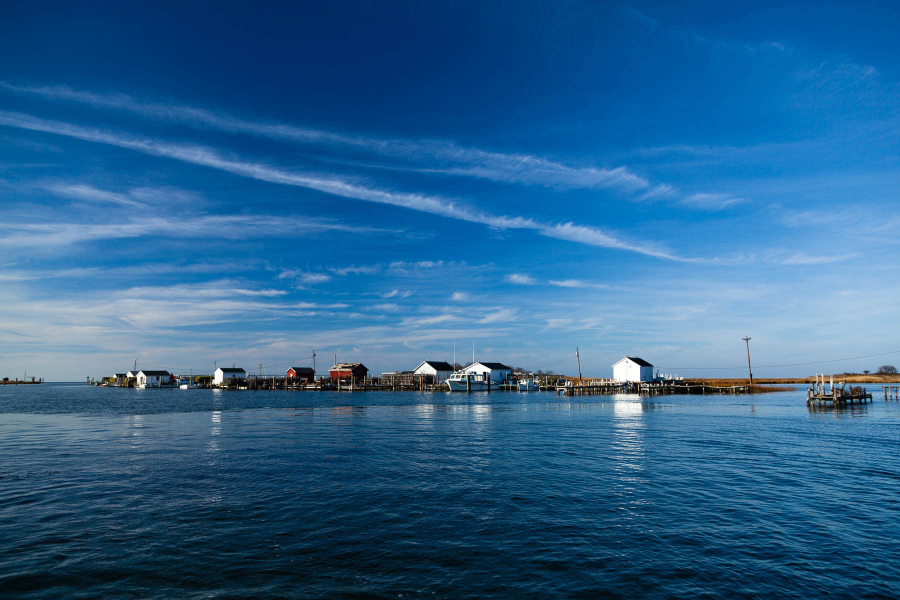
On one of the last remaining islands of the Chesapeake Bay, generations of working watermen have found a home.
Settled in the late seventeenth century, Tangier Island spans a five-mile stretch of water and has never supported more than 1,500 people. Its small size and relative isolation have allowed its residents to maintain a close connection to the past, keeping old customs and a distinct Tidewater dialect alive.
Modern families—with surnames like Crockett, Pruitt, Parks and Dise—can trace their lineage back hundreds of years, and the island’s economy remains tied to the harvest of crabs, fish and oysters. But these tenuous traditions are threatened by worsening water quality and sea-level rise.
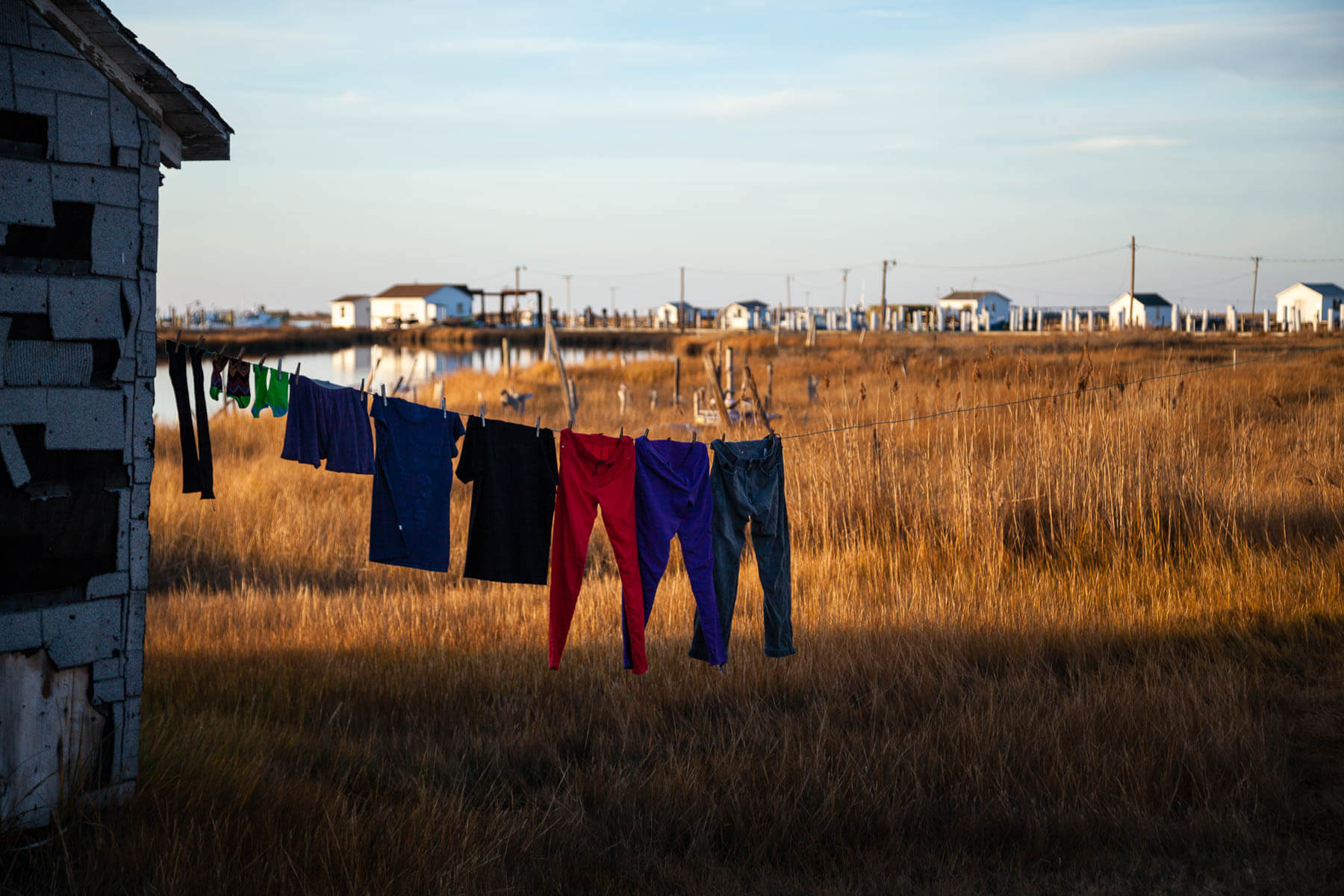
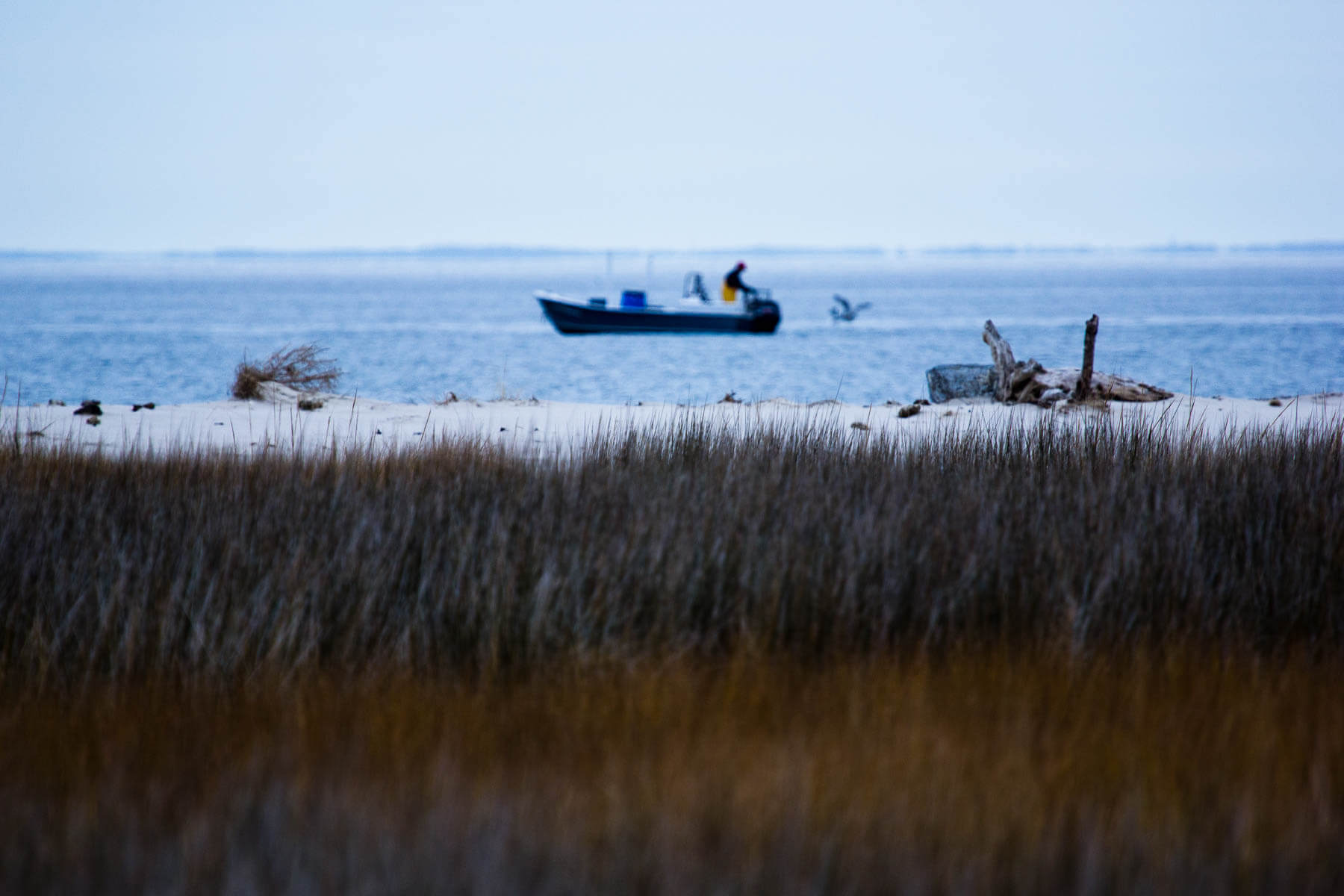
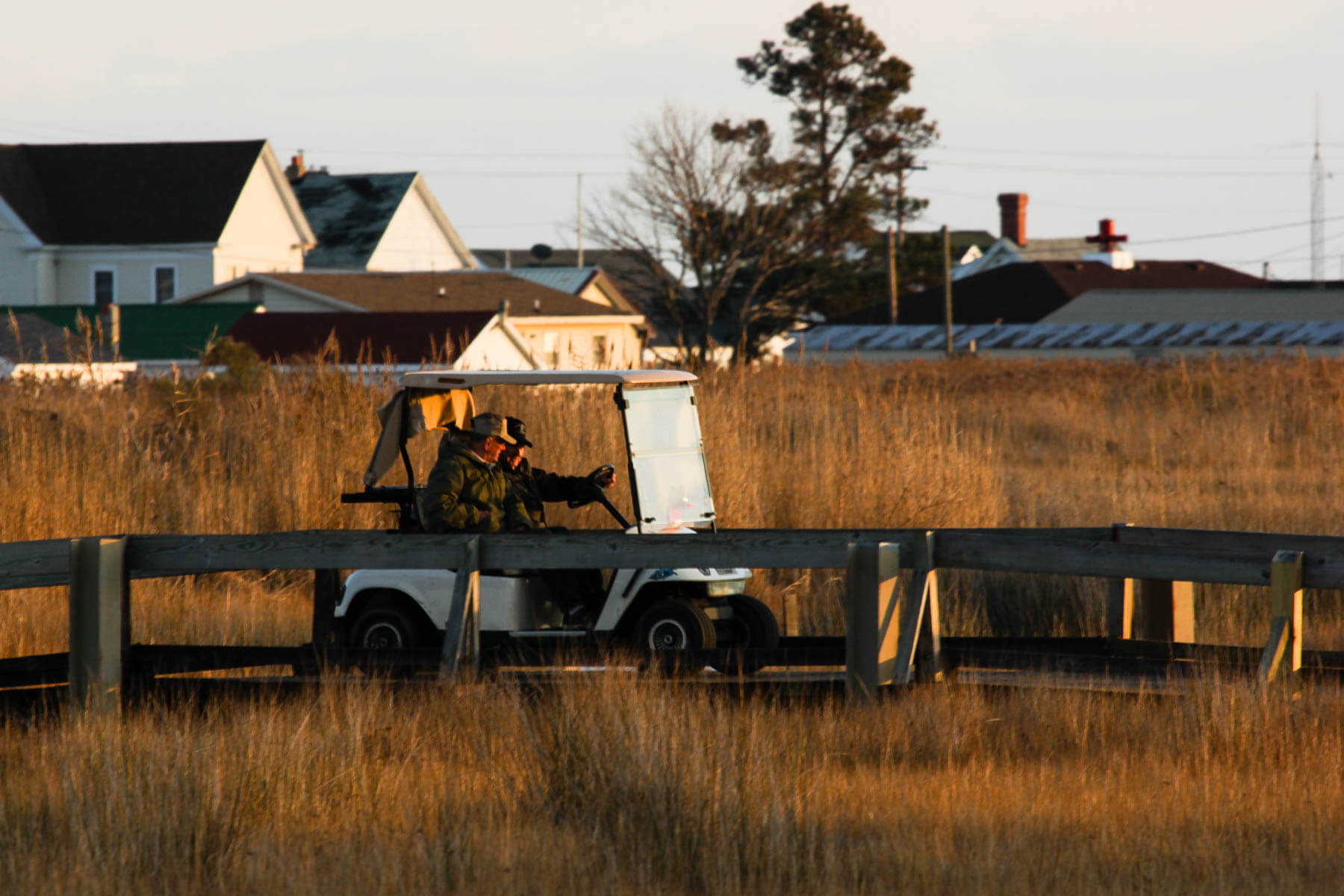
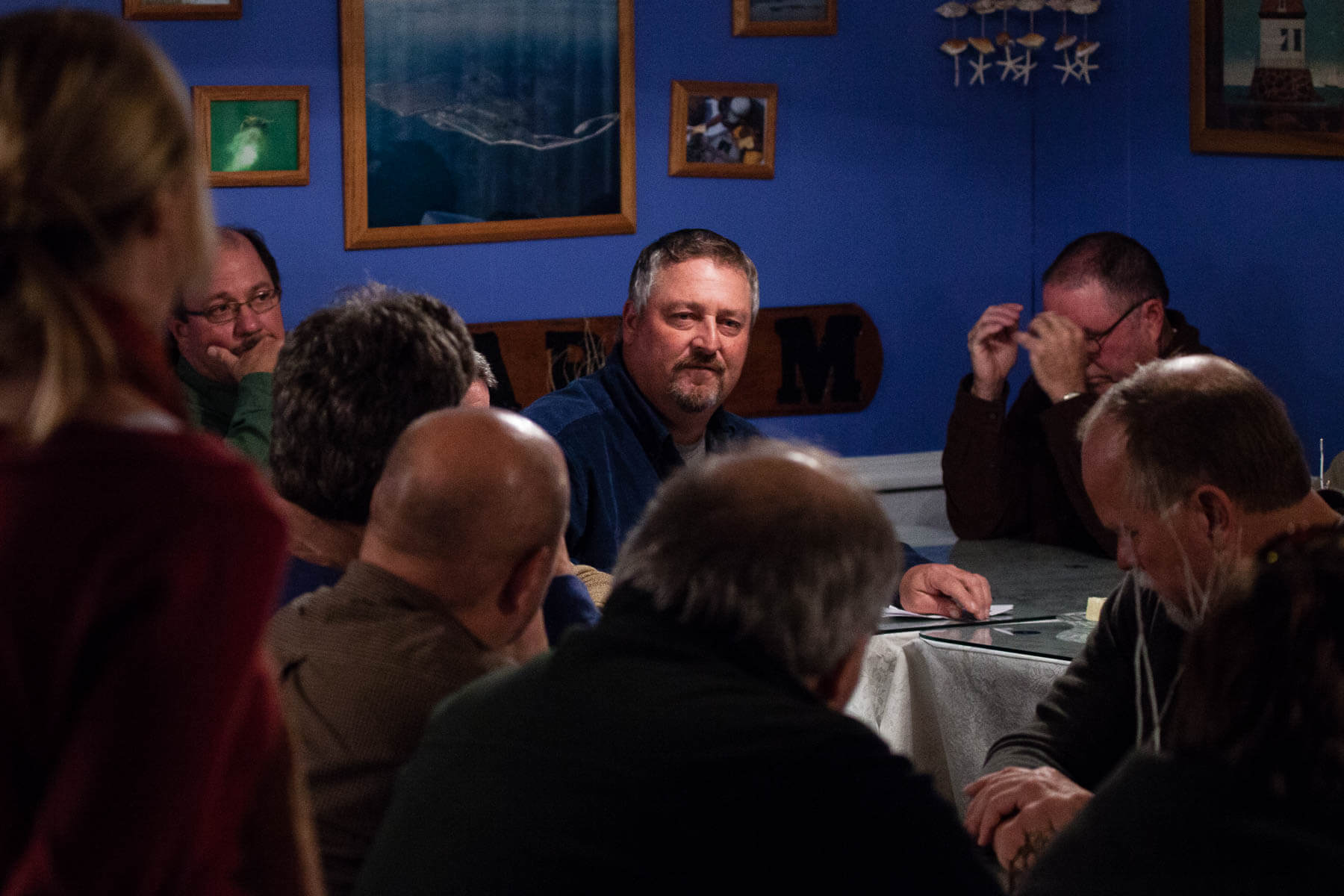
In December, the Chesapeake Bay Program’s Sustainable Fisheries Goal Implementation Team called together decision-makers and watermen for a shared meal and stakeholders’ discussion at one of Tangier Island’s four sit-down restaurants.
Watermen from Tangier and neighboring Smith Island spoke of the problems they see in and on the Bay and how they might be more involved in the management decisions that directly impact their livelihoods.
Held in the community in which these watermen live and work, the meeting allowed many of them to speak and be heard in a new and significant way.
One of the most pressing problems for the watermen is the flow of sediment into the Bay. As sediment runs off of land and into the water, sand and silt block sunlight from reaching the grass beds that offer shedding blue crabs refuge when their soft shells make them most vulnerable.
Soft-shell crabs are critical to the Tangier Island economy. And a loss of grass beds—which one waterman called “the life blood of the Chesapeake Bay”—could mean a loss of soft-shell crabs. “The habitat,” a second waterman said. “It just ain’t there.”
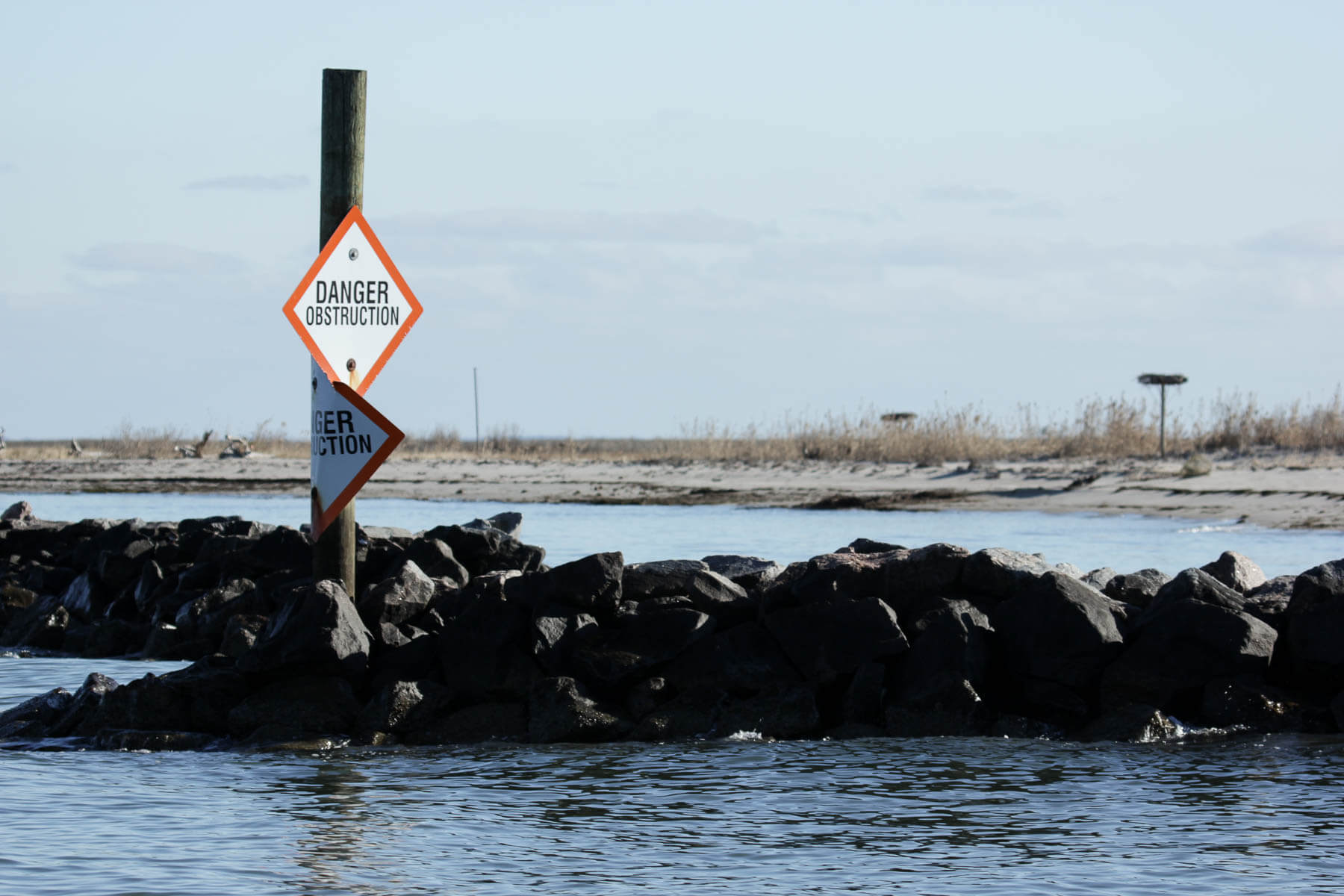
Seawalls have been put in place to slow the erosion of the island. But as sea levels rise, the land sinks and storms like Sandy, Irene and Isabel grow stronger and more frequent, Tangier continues to wash away.
The northernmost portion of Tangier Island is called Uppards. Once home to a store, a school, a church and a collection of homes, the life of Uppards has disappeared, leaving behind one tumbledown trailer and stretches of marsh, sand and beach.
In October, a small cemetery was uncovered on Uppards by the winds and waves of Superstorm Sandy. Headstones in the graveyard bear the common surname Pruitt. The once-buried bones of those who died in the 1880s are now visible aboveground.
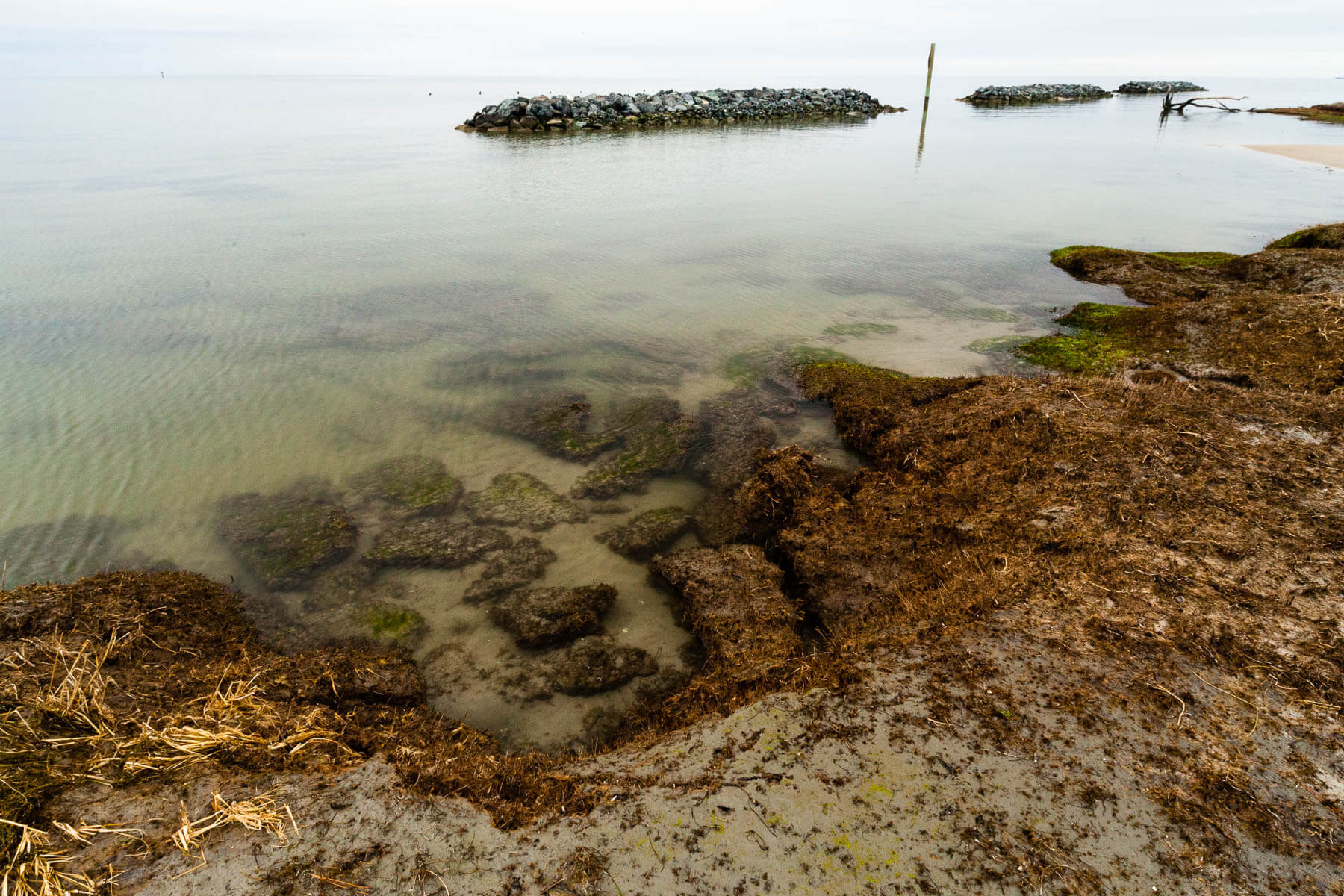
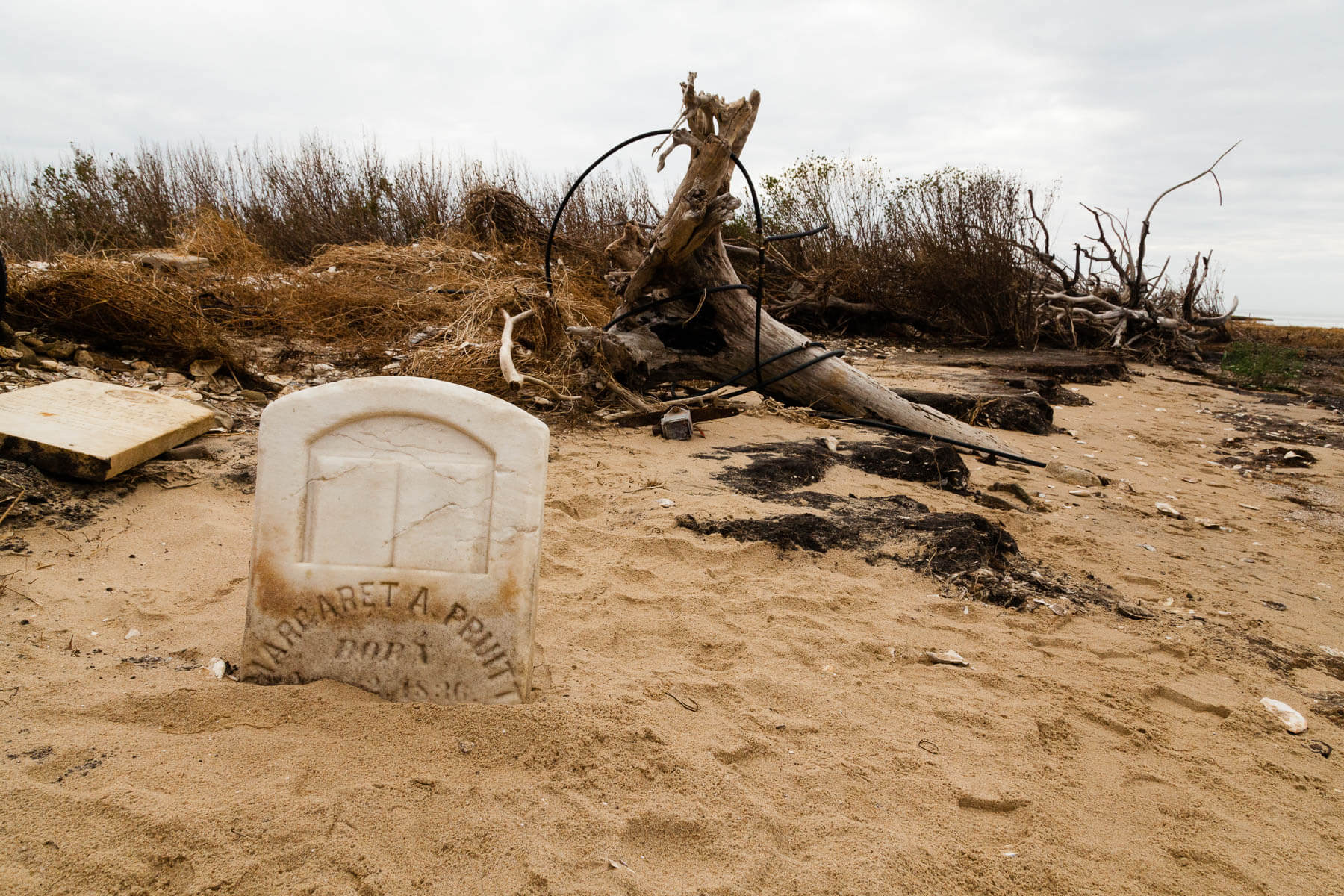
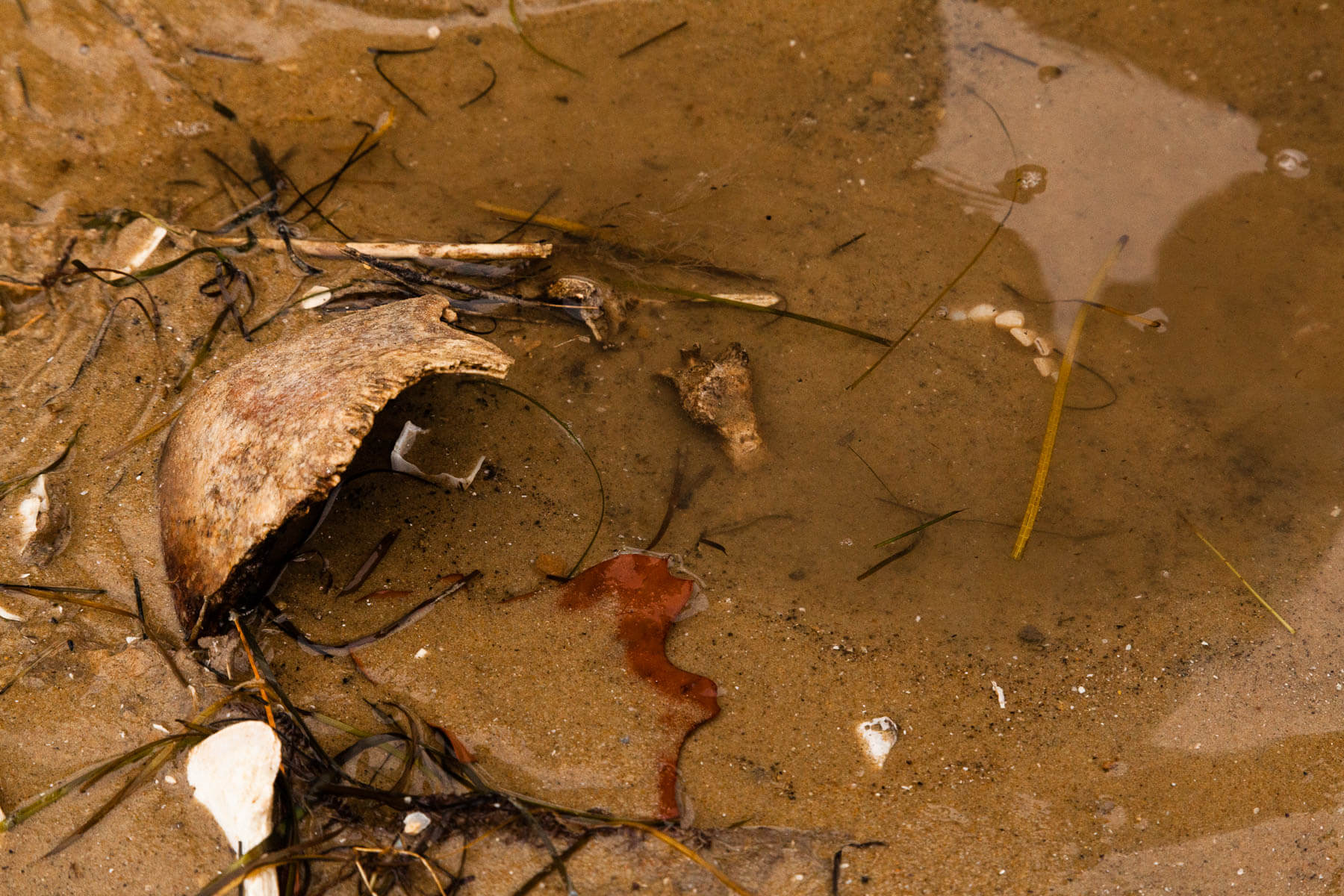
This fall, Virginia Governor Robert F. McDonnell and officials from the Army Corps of Engineers pledged to build a $4.2 million jetty that will protect the island’s harbor. Some see the long-awaited initiative as a beacon of hope, while others believe it serves only to slow inevitable erosion.
As Tangier Island shrinks, the costs of fuel and gear and living rise, placing further pressure on the island’s aging watermen.
But what career alternatives does a waterman have? Some take jobs aboard tug boats. Other host tours for visitors from the mainland. And still others have found work as captains and educators at island study centers operated by the Chesapeake Bay Foundation.
But most Tangier residents would find it difficult to obtain work off the island, where a 45-minute ride on a ferry or mail boat is needed to make it to the nearest town. One waterman lamented this lack of options: “We don’t have the opportunity to get a land job.”
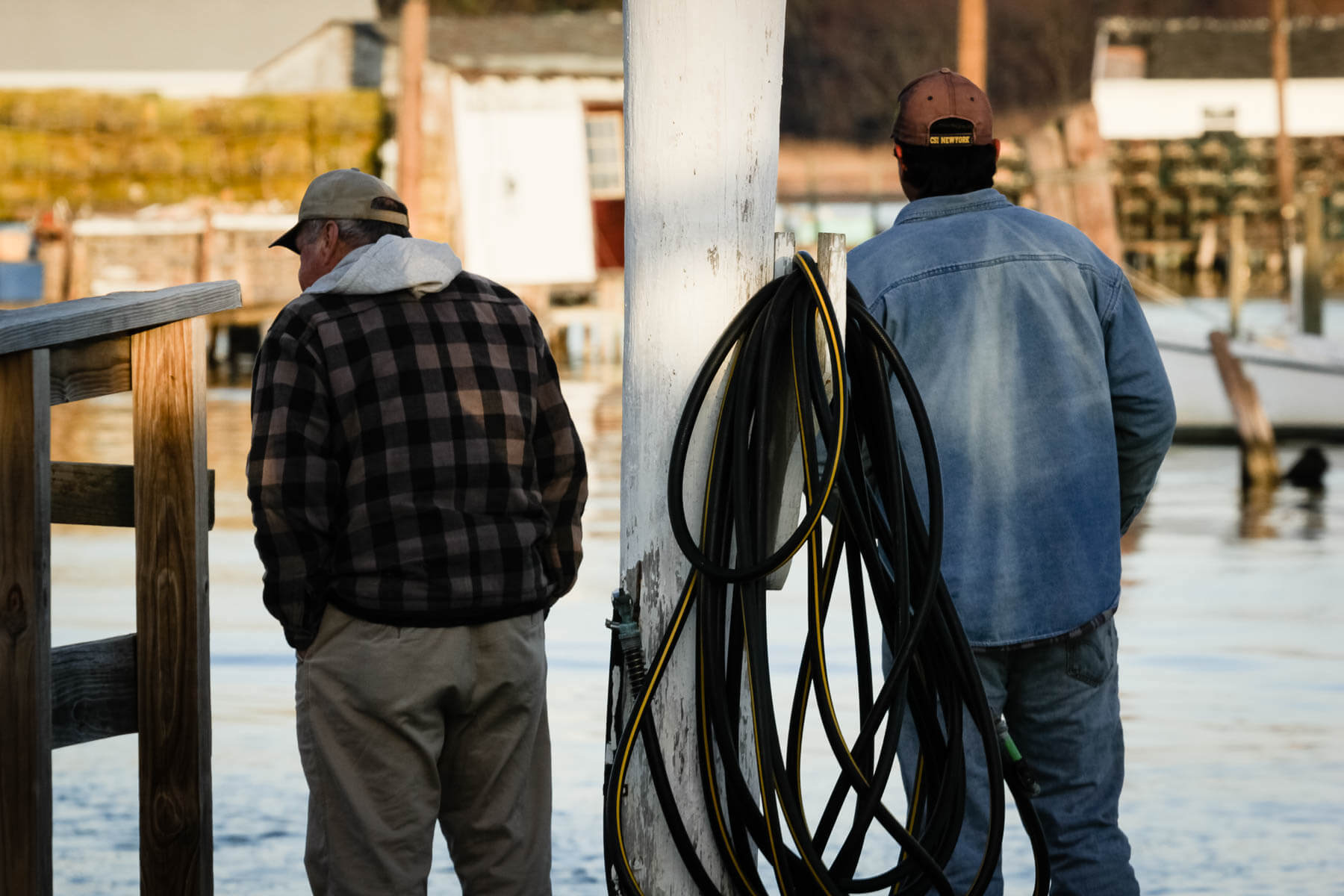
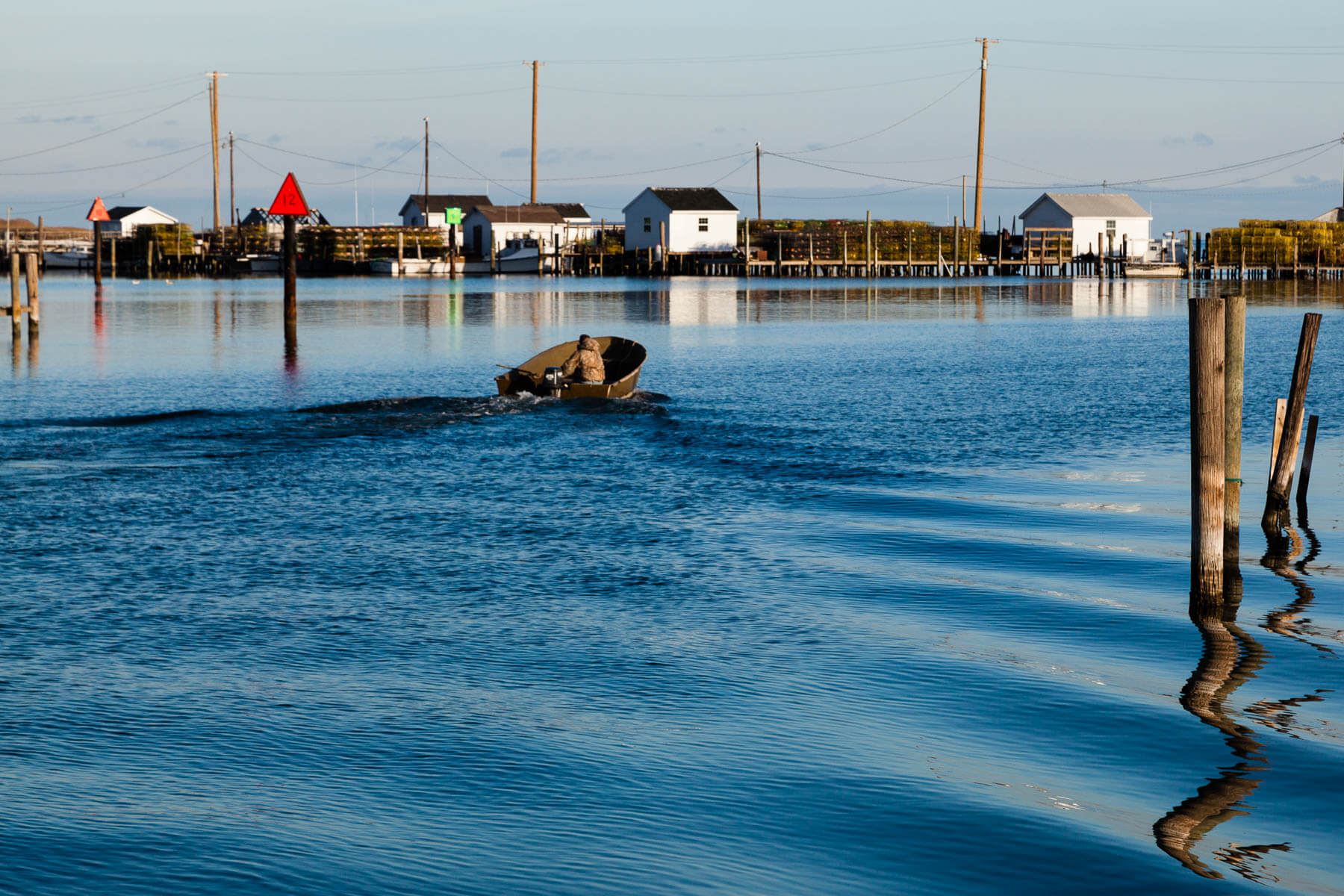
A dependence on the fish and shellfish of the Bay has created a conservation ethic in many Tangier watermen, including Tangier Mayor James “Ooker” Eskridge. Eskridge spoke of the importance of restoration efforts in a time of environmental change, and of preserving natural resources in order to preserve Tangier careers and culture: “A sustainable resource is more important to a waterman than anyone else.”
Access high-resolution images of Tangier Island on the Chesapeake Bay Program Flickr page.

Comments
I wish all watermen respected the bay. The abuse of over catching fish and crabs and keeping the sooks when they should be released has taken its toll on crabs in the bay along with pollution. When is mankind going to learn that we only have one earth and we are all in this together? What affects Tangier affects all of us and touches us in one way or another. We need to clean up the pollution so the grasses come back and stop polluting the water and the air. Money is not going to help us when the bay is dead.
Great essay! Thanks! I have to wonder about the population demographics of Tangier Island, and if the next generation will view it as a viable place to live.
Yes--a wonderful job by our Communications Team. Steve Droter took the photos, and Catherine Krikstan wrote the accompanying text; she was on Tangier with Steve to experience the people, beauty and culture of that special place.
Great Photo Essay! I'll pass it on, thank you.
Excellent essay! But please change the caption about soft shelled crabs so it is clear that the soft shelled crab is not a separate species (as many think) but a stage in the life cycle of the blue crab.
Why can't humans stop with the romantic sob stories and recognize when we're living an unsustainable life. I'm sorry folks, but we have another New Orleans here.
Wonderful essay! Thanks, I'll be sharing it with our partners!
Thanks for this. This essay will be useful when working with teachers on thinking about the impacts of climate change, not just the impacts on systems, but on people, their businesses, etc. Maybe our next generation of students will be able to develop innovative solutions to this problem.
Thanks, Amy! All of the photos were taken by our Multimedia Coordinator, Steve Droter.
Beautiful photo essay! Who took the pictures?
Thank you!
Your comment has been received. Before it can be published, the comment will be reviewed by our team to ensure it adheres with our rules of engagement.
Back to recent stories